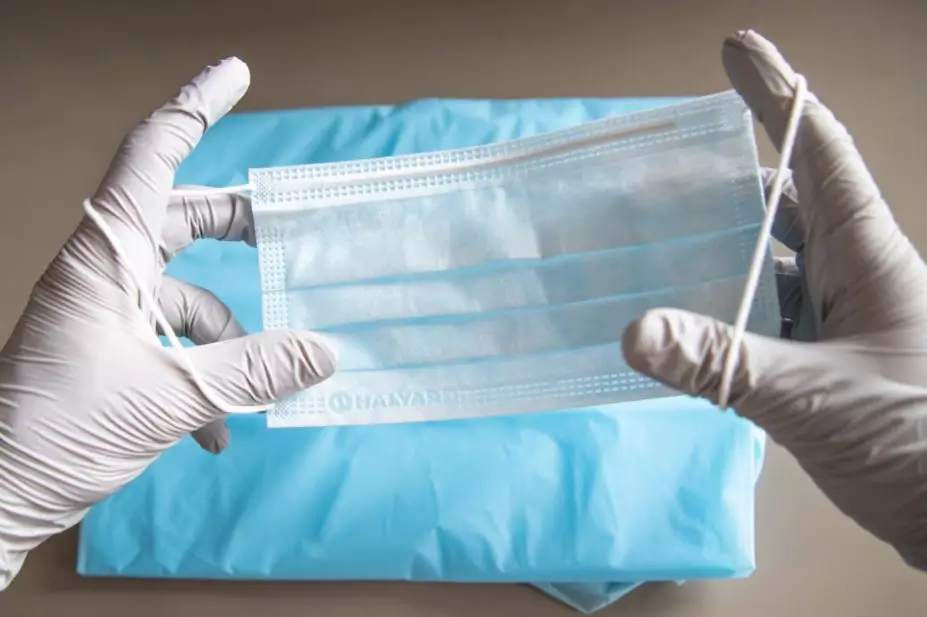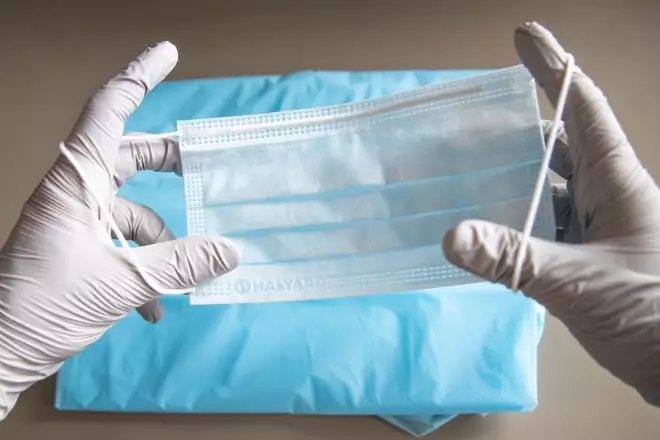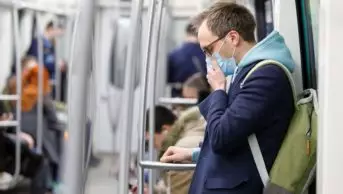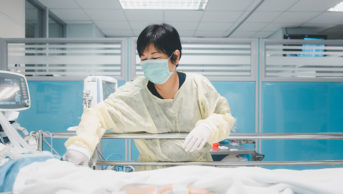
PA images
Open access article
The Royal Pharmaceutical Society has made this article free to access in order to help healthcare professionals stay informed about an issue of national importance.
To learn more about coronavirus, please visit: https://www.rpharms.com/resources/pharmacy-guides/wuhan-novel-coronavirus

Source: PA images
The letter stated that the personal protective equipment packs must not be sold to the public
The government will send out personal protective equipment (PPE) to every community pharmacy to help protect pharmacy staff against COVID-19.
A letter from England’s chief pharmaceutical officer Keith Ridge, sent on 9 March 2020, said each box of PPE would be “a similar pack” to the ones that have already been sent out to GPs.
The PPE pack for GP surgeries contained 400 general-use aprons, 300 pairs of examination gloves and 300 fluid-repellent face masks.
The letter stated that pharmacists “will have limited need” for PPE, with gloves, aprons and masks only expected to be used “by the pharmacy staff and isolated patients in line with the standard operating procedure (SOP)”.
It added that the PPE pack, which will be provided to pharmacies free of charge, “must not be sold to the public”.
“Strictly enforced arrangements for further replenishment will be in place and will be communicated to you shortly,” the letter added.
According to NHS England’s SOP, published on 27 February 2020, pharmacists should wear PPE in suspected COVID-19 cases “if entry to the designated isolation space or contact with the patient is unavoidable” or when cleaning the pharmacy after a patient with suspected COVID-19 has left”.
The Pharmaceutical Services Negotiating Committee (PSNC) said in a statement on its website that the protective equipment was being provided to pharmacies after requests from negotiators.
It said the need for pharmacies to use PPE “at this time, is low”, as people who are suspected COVID-19 cases “should be immediately told to return home and then access NHS 111 online or call NHS 111 … in order that the pharmacy does not have the increased risk of dealing with an isolated patient in the consultation room and the subsequent need for decontamination”.
The PSNC also said it was working with Public Health England (PHE) “to ensure that wholesalers’ stocks are replenished from the national PHE supplies”.
Commenting on the supply of PPE packs to community pharmacy, Hemant Patel, secretary of the North East London Local Pharmaceutical Committee (LPC), said that, with “around 550 contacts per day” in community pharmacy, protection of staff “is a major concern” for employers.
“I am sure that the sector, as a whole, will appreciate the recognition and support for safety of hard-working and dedicated staff to continue their work of helping communities become resilient,” he said.
Community pharmacists have previously told The Pharmaceutical Journal that staff have struggled to obtain PPE as the spread of COVID-19 continues.
“Pharmacies have tried to buy more and are telling me they can’t get it,” said Nick Hunter, chief officer of Nottingham and Doncaster LPCs, but added that “all pharmacies should have a small amount [of PPE] as part of their business continuity” for incidents involving spillages and hazard protection.
He said he had been “having conversations with clinical commissioning groups around how we might help pharmacies access PPE, if they need to in any great quantity”.
“There’s a balance as to what’s really needed versus what people think they need or would like,” he added. “There are other people in the health system who are much more needy of PPE than we would be in the current climate.”
Anne-Marie King, chief officer of Northamptonshire LPC, also reported that her local pharmacies were struggling to obtain PPE, which she said she had highlighted to PHE’s coronavirus helpline.
The Pharmaceutical Journal has approached NHS England for clarification on the exact amount of PPE included in each pack.


